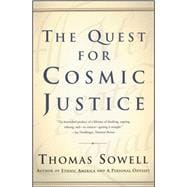
Note: Supplemental materials are not guaranteed with Rental or Used book purchases.
Purchase Benefits
| Preface | vii | ||||
|
1 | (48) | |||
|
49 | (48) | |||
|
97 | (46) | |||
|
143 | (48) | |||
| Notes | 191 | (16) | |||
| Index | 207 |
The New copy of this book will include any supplemental materials advertised. Please check the title of the book to determine if it should include any access cards, study guides, lab manuals, CDs, etc.
The Used, Rental and eBook copies of this book are not guaranteed to include any supplemental materials. Typically, only the book itself is included. This is true even if the title states it includes any access cards, study guides, lab manuals, CDs, etc.
General principles, such as "justice" or "equality," are often passionately invoked in the course of arguing about the issues of the day, but such terms usually go undefined and unexamined. Often much more could be gained by scrutinizing what we ourselves mean by such notions than by trying to convince or overwhelm others. If we understood what we were really saying, in many cases we might not say it or, if we did, we might have a better chance of making our reasons understood by those who disagree with us.
The heady rush of rhetoric and visions are the stuff of everyday politics and everyday media discussion. That makes it all the more important that, at some point, we step back and examine what it all means underneath the froth or glitter. This book is an attempt to do that.
The ideas discussed here took shape over a long period of time. The title essay evolved out of a paper I gave in St. Gallen, Switzerland, in 1982 on "Trade-Offs and Social Justice." By 1984, it was recast and elaborated at great length in another paper called "Social Justice Reconsidered," which was circulated to various people around the country, including Milton Friedman and Mancur Olson. Professor Friedman's typically incisive criticisms were followed by the opinion that "it is well worth the effort required to put it in shape." Professor Olson's comments were likewise critical and perhaps not quite as encouraging. I too understood the difficulties of that draft, which was academic and radically different in form from what appears in this book.
Over the years, "Social Justice Reconsidered" evolved into "The Quest for Cosmic Justice," completely recast yet again, but still not finished a decade later. Nor was it certain that it ever would be finished, given the various other projects I was involved in. However, in the spring of 1996, some particularly sophomoric remarks by one of my Stanford colleagues not only provoked my anger but also convinced me that there was a real need to untangle the kind of confusions that could lead any sensible adult to say the things he had said -- and which all too many other people were saying. I went home and immediately resumed work on the essay on cosmic justice, writing it now for the general public, rather than for an academic audience.
By the autumn of 1996, the new version was completed and I presented "The Quest for Cosmic Justice" as a lecture in New Zealand. Much to my pleasant surprise, large excerpts from it were published in the country's leading newspapers. This press coverage, as well as the enthusiastic reception of the talk by a non-academic audience, convinced me that this was something that the general public would understand -- perhaps more readily than some academics who are locked into the intellectual fashions of the day.
The other essays in this book also evolved over a period of years and within a similar framework of thought that now gives them a collective coherence, even though they were written to stand alone individually. The central ideas in "Visions of War and Peace" first appeared in an article of that title that I published in 1987 in the British journalEncounter.The current and much briefer version is now a section in the essay "The Tyranny of Visions."
The generosity of Milton Friedman and the late Mancur Olson in criticizing the earlier, academically oriented paper of mine is much appreciated, but of course they share no responsibility for any shortcomings of the present, very different essay, aimed at a more general audience. In a truly just world, I would also have to acknowledge my debt to my colleague whose sloppy thinking galvanized me into action. However, I shall not do so by name, in deference to collegiality and to the libel laws in a litigious society.
Thomas Sowell
Rose and Milton Friedman Senior Fellow
Hoover Institution
Stanford University
Copyright © 1999 by Thomas Sowell
Excerpted from The Quest for Cosmic Justice by Thomas Sowell
All rights reserved by the original copyright owners. Excerpts are provided for display purposes only and may not be reproduced, reprinted or distributed without the written permission of the publisher.